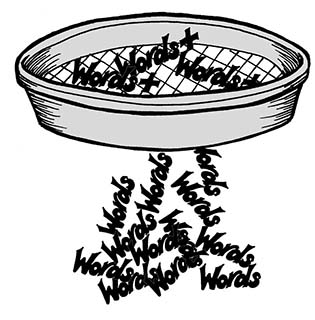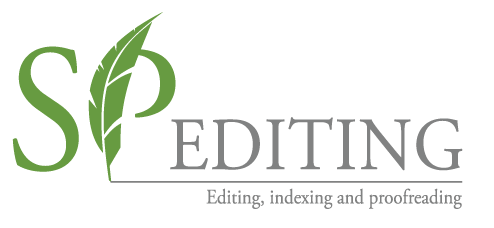National Indexing Day has recently passed, with indexers around the world quietly celebrating. You might ask ‘Why does it matter?’. Why do we need to devote a day in praise of the index?
Inspired by a 2017 article in the Guardian on the value of indexes, I decided to explore this topic. People sometimes say ‘I don’t need to pay someone to create an index, I can just generate one in Word’. Isn’t an index redundant when you can search any document for key words? Here I will explain that while this may be true, a good human-made index will complete your book and maybe even add value.
If there is no index
It is frustrating to pick up a non-fiction book and find that there is no index. Sure, you can use the table of contents to navigate the big picture – but it is often detail that you want. You can also use a search function if your book or document is electronic (Ctrl F works in most documents). Sometimes, however, you won’t know what you want to look up until you start browsing the index. The index opens gateways to new information.
So, if there are two books covering the same topic, a reader is likely to choose the one with an index. That’s how the value is added.
List of mentions vs information
If you hit Control F you will be able to search for all occurences of a word or phrase in your document. This sounds like a quick way to find the information you are looking for. But how much better it is if someone has already read the article and sifted the gold from all that mud!
Say you are browsing a book on the chemicals in vegetables. You might, for example, want to see whether the book offers any information on compounds to ease the pain of arthritis. So you look for ‘pain’ and find that the index lists ‘pain relief’. This leads you to a two-page section on ginger and its anti-inflammatory benefits. Curiosity might then lead you to ‘ginger’ and you find that there are native Australian gingers. ‘What about other anti-inflammatories, like aspirin?’, you might wonder. A browse of ‘A’ reveals more information: aspirin acts as a blood thinner, and it also has a role in stomach ulcers. Just by looking in the index, and using it to follow some leads, you have some quite focussed information. This is so much more useful than finding the 50 or so mentions that you would find by searching with Control F!
See also…
Then there’s the wonderful See also reference. This is a bonus that the indexer can add when they want to direct the reader to some additional information. It’s not exactly the same as what you might have looked up, but is related and might be of interest. An example: from an index for the Australian Police Journal, you might be looking up ‘Identification’ and find an article about the methods to identify the faces of suspects to help solve crimes. The index also provide a See also reference to ‘Facial reconstruction and identification’, giving an insight into clay modelling of facial features to identify victims.

Words vs concepts
An indexer needs to make judgements when deciding what to add to an index. One decision is what sorts of information a reader might be seeking. A bit of knowledge about the topic and the likely audience is useful here, as is a bit of guesswork.
Another is how to list a piece of information in the index. A single word entry might not be clear enough. The indexer must use their knowledge and experience to work out a way of expressing a concept so a reader can find what they are seeking. In a community cookbook from south-western Sydney, for example, residents offer family recipes from their cultures. The reader can find Lebanese food, Mauritian food and Indian food, among others. One woman described her memories of lamingtons, sultana cake and baked dinners; the indexer suggested Anglo-Australian food for this section, rather than simply listing those old-fashioned Aussie food items.
There you have it, some reasons to celebrate indexes and the people who create them with experience, knowledge, judgement and even humour. For a bit more on the topic, click the link to a podcast from the English site bookcareers.com. You can also look at my indexing page and contact me for more info.
